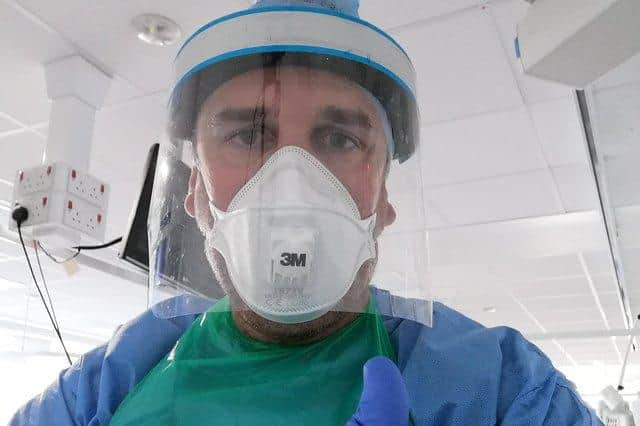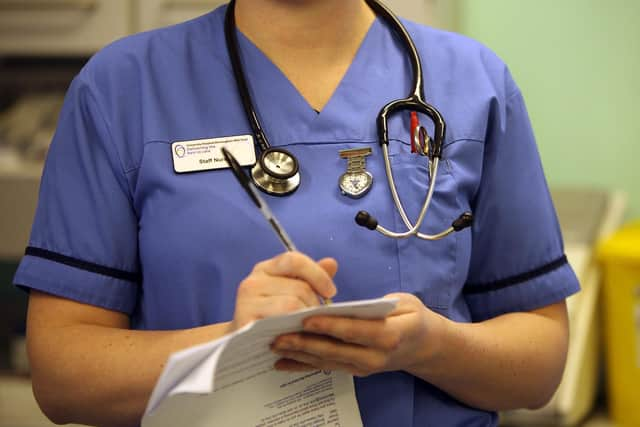Sheffield NHS and care staff at burnout over ‘increased workload and inadequate pay’
and live on Freeview channel 276
Sheffield nurse Joan Pons Laplana, who speaks in his capacity as an GMB activist, said this in response to a highly critical report released by House of Commons Health and Social Care Committee that workers were exhausted and overstretched of staff shortages.
He said it was “quite astonishing” that the report has only been published now when the Government should have been worried about the dire situation years ago, which he said, has been made worse by the Covid-19 pandemic.
Advertisement
Hide AdAdvertisement
Hide AdHe said: “(The Government) has led the situation to be as it is now because the burnout is not just because of Covid. Covid has just sped up what has been happening in the last years. It’s the chronic understaffing that we have in the NHS.


"It worries me because a lot of nurses are retiring early and the only way is to replace them but we need to work a lot more on retainment because nurses who are leaving, they have a lot of experience that cannot be replaced by others because it takes years to reach a certain level of expertise.”
The report, among others, stated one of the main problems was that there was no accurate forecast of how many staff the NHS needed for the next five to 10 years - something it called "workforce planning".
It said there needed to be a "total overhaul of the way the NHS does workforce planning" - and there should be annual reports published on how many workers the NHS would need for the next five, 10 and 20 years.
Advertisement
Hide AdAdvertisement
Hide Ad"It is clear that workforce planning has been led by the funding envelope available to health and social care rather than by demand and the capacity required to service that demand," said the report.


The report also said an excessive workload due to understaffing, which is a key driver to the widespread burnout must be tackled as a priority.
Mr Pons Laplana agreed, saying that the demand has increased yearly – a lot more than the investment the sector is supposed to receive.
"This means there is a gap between what we are willing to provide and the money we have because we need to do a lot more with limited resources, this is what will have an impact in the quality of care.
Advertisement
Hide AdAdvertisement
Hide Ad"You cannot say to the patients we are going to have less activity because we are understaffed...the burnout is not just work, it’s about how we make ends meet too.
"Nurses in London are also leaving because they can’t afford to pay the rent and that has added to the pressure. It’s not that we want to be rich, but we want to be able to do a job and be paid according to our knowledge and care,” he said.
Meanwhile, Royal College of Midwives (RCM) calls for long-term investment in the NHS and its staff to prevent the service haemorrhaging its people.
Alice Sorby, Employment Relations Advisor at the RCM, said: “The pandemic has amplified the pressure that midwives and other maternity staff are under and exposed the gaping hole of understaffing and insufficient resources that besets maternity services and the wider NHS.
Advertisement